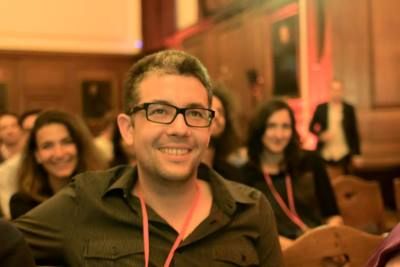
“It is important to critically analyze the foundations of political institutions,” says Cristóbal Caviedes, a Chilean native who began his PhD in Law studies at Queen’s last January. That attitude is not only driving his doctoral research, but also garnered him an International Ontario Graduate Scholarship.
Caviedes, who holds master’s degrees in law from the University of Chile and University College London (UCL), is now ready to challenge the basic rules that structure democratic societies.
Challenging a key principle of the Supreme Court of Canada and most other constitutional courts – the decision-making rule of majority voting – is the topic of his thesis. “The vast majority of courts use majority voting; only some use other methods like unanimity,” he says. “Not all of them publish the dissents or the vote. In some countries you do not know who the judges are who signed the opinion, but the decision-making rule is usually majority voting even in those cases. I’m basically questioning whether majority voting is adequately justified and if there are better alternatives.
“Sometimes we follow a certain inertia and do not call into question what is familiar to us,” Caviedes states as he describes his project’s importance. “Institutional development is crucial for developing countries like mine. Shedding light on political institutions is important because it can provide a basis for changing those institutions if the foundations are not well grounded.”
Supervising this project is Professor Grégoire Webber, Canada Research Chair in Public Law and Philosophy of Law. Caviedes first became acquainted with Webber’s literature while studying at UCL. After discussing his research interests with Webber, he knew coming to Queen's was the right decision.
Caviedes describes Webber as attentive and focused. “It has been great working with him. He is good at establishing deadlines and gives very good suggestions about how to proceed with the research. He wants you to develop the best project you can.” This year Webber is on leave serving as the Legal Affairs Advisor to the Minister of Justice and Attorney General of Canada so Professor Jean Thomas, also an expert in the philosophy of law, will be working with Caviedes. "Both Professors Webber and Thomas have been incredibly supportive of me," says Caviedes.
On his time so far at Queen’s, Caviedes says, “I have enjoyed living in Canada, it is a great place to live and I have been marvellously received. The PhD group here is very supportive.”
By Anthony Pugh